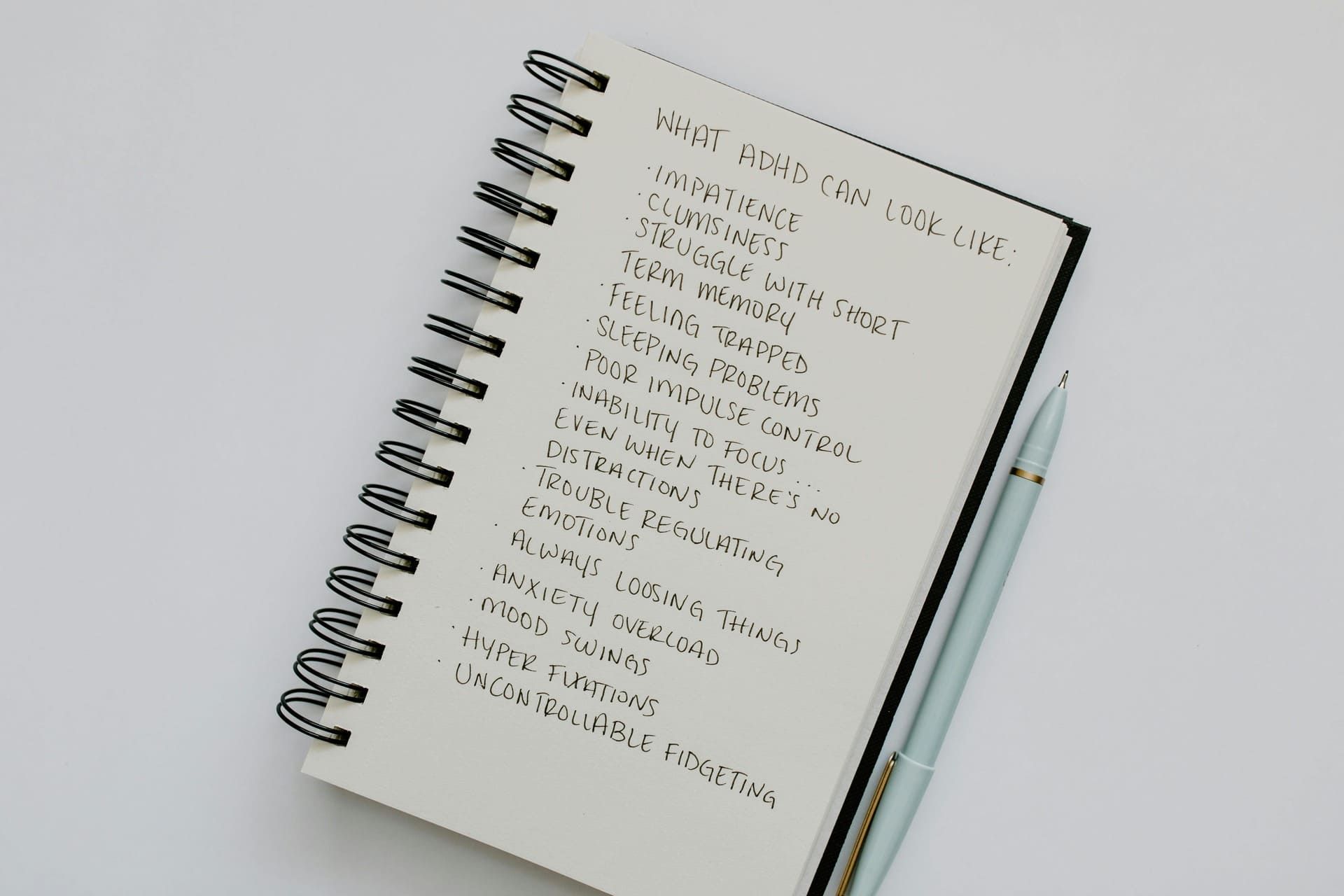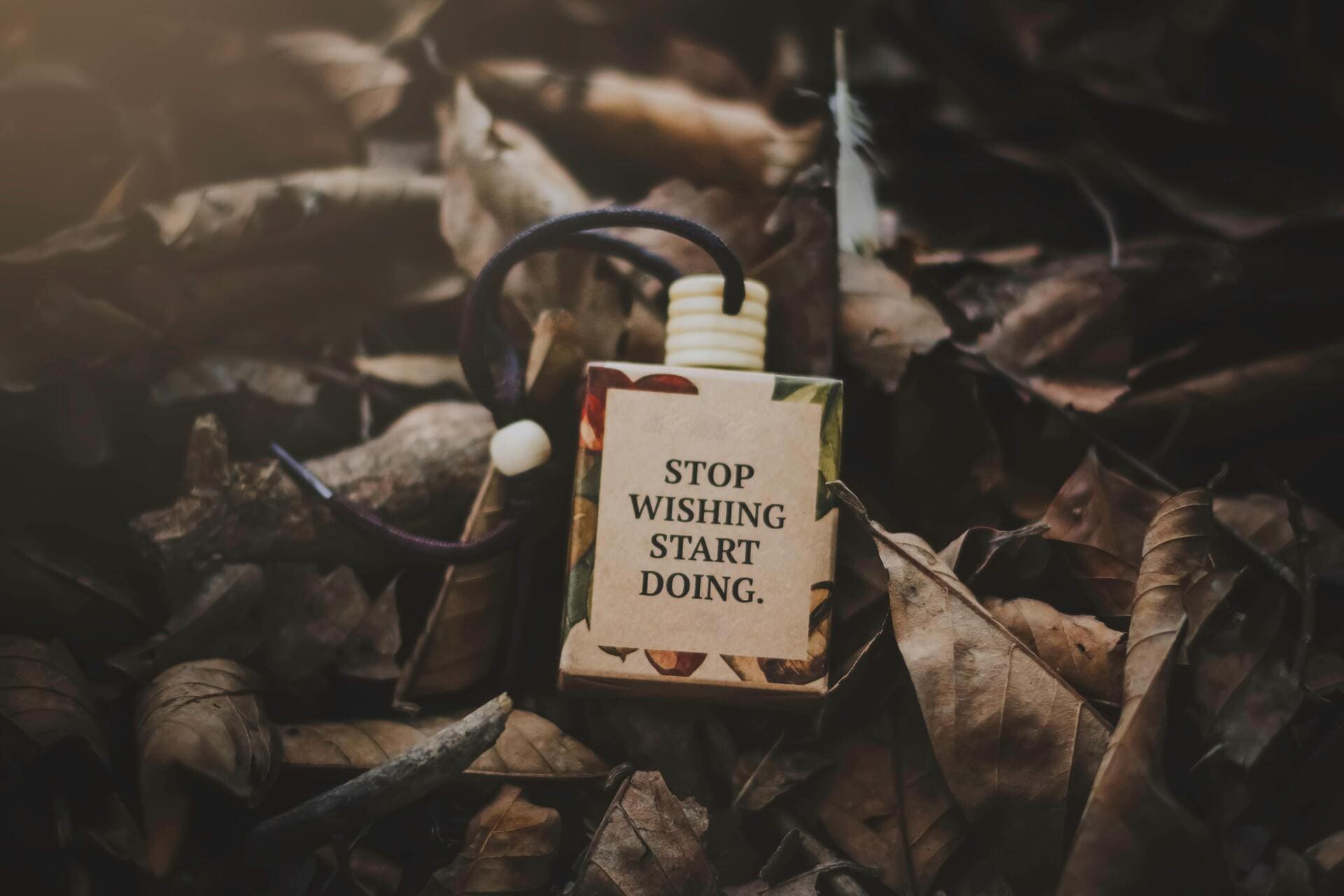ADHD Symptom Checklist for Women: What’s Normal, What’s Not

Sarah Johnson, MD

ADHD Symptom Checklist for Women - What’s Normal, What’s Not
Many women with ADHD go through life feeling chronically overwhelmed, misunderstood, or simply "different," without knowing why. Their symptoms often don't match the stereotypical hyperactive boy image, leading to years of missed diagnosis.
This ADHD symptom checklist helps women identify subtle signs that often go unnoticed or mistaken for anxiety and stress.
By referencing frameworks discussed in authoritative sources like the APA (American Psychiatric Association), NIH (National Institutes of Health), and publications like Harvard Health Publishing, we can better understand the female presentation of ADHD. Increasing self-awareness around these hidden ADHD traits is a crucial first step for neurodivergent women toward getting the right support.
If your ADHD symptoms have been overlooked or mistaken for anxiety, a Mental Health AI can help provide clarity and personalized strategies for support.
Why ADHD Often Goes Unnoticed in Women
ADHD in women is frequently invisible. The presentation of undiagnosed ADHD symptoms in females tends to be more internal rather than external. While hyperactive boys might be noticed for their disruptive behavior, girls and women often develop sophisticated coping mechanisms to mask their struggles.
Their symptoms are more likely to manifest as inattentiveness, daydreaming, emotional sensitivity, and chronic disorganization. Furthermore, societal expectations play a significant role; women are often socialized to be organized, attentive, and emotionally regulated.

When they struggle with these very things, they internalize it as a personal failing, leading to shame and a drive to overcompensate. This is why hidden ADHD traits in women are so common. They might have been the "chatty child" who learned to stay quiet, or they now maintain a facade of "organized chaos" through exhausting mental effort.
Perfectionism becomes a common coping strategy to hide underlying executive dysfunction, making the condition easy to miss for clinicians who are not specifically trained in adult ADHD and late diagnosis in neurodivergent women.
This cycle of emotional masking and constant compensation often leads directly to a profound burnout cycle. Recognizing these patterns isn't about labeling-it's about empowerment; effective ADHD focus strategies can help you harness your unique brain wiring for better productivity and peace.
Masking, Overcompensation, and Misdiagnosis
Women with ADHD become masters of camouflage. Masking involves consciously or unconsciously hiding their symptoms to fit in. This can look like forcing eye contact during conversations they've zoned out of, meticulously planning every minute to avoid being late, or staying up all night to complete a task they couldn't start during the day.
Overcompensation is the extreme effort to appear "normal," which is mentally and physically draining. This constant performance often leads to misdiagnosis.
Their exhaustion and overwhelm may be labeled as an anxiety disorder, their emotional dysregulation as depression or bipolar disorder, and their focus struggles as a moral failing or lack of discipline. Understanding these concepts of social masking and neurodivergent fatigue is key to recognizing the true picture. Your focus isn't broken; it's just on a different frequency, and understanding these ADHD anxiety symptoms is the first step toward working with your brain, not against it.
ADHD Symptom Checklist for Women
Use the following adhd symptom checklist as a starting point for self-reflection. Remember, this is not a diagnostic tool but a guide to identify patterns that may warrant a professional evaluation.
Attention and Focus Symptoms
- Trouble finishing everyday tasks (e.g., laundry, work reports, cleaning).
- Mind wandering during conversations, even when trying hard to listen.
- Frequently forgetting details, directions, or important appointments.
- Experiencing hyperfocus, becoming so absorbed in a stimulating activity (a special interest, a project) that you lose track of time and everything else.
- Related concepts: time blindness, mental fog, attention deficit patterns, dopamine seeking.
Executive Dysfunction Symptoms
- Chronic procrastination on simple tasks you know how to do.
- A persistent feeling of disorganization at home or work, leading to missed deadlines.
- Poor time estimation (severely underestimating or overestimating how long tasks will take) and difficulty with prioritization.
- Avoidance of tasks that feel overwhelming, leading to task paralysis.
- Related concepts: decision fatigue, mental overload, planning difficulties.
Emotional Dysregulation Symptoms
- Intense, seemingly uncontrollable emotional reactions that feel disproportionate to the situation.
- Extreme overreaction to perceived criticism or rejection (Rejection Sensitive Dysphoria or RSD).
- Experiencing sudden emotional "crashes" or exhaustion after a period of high stress or excitement.
- Related concepts: emotional overwhelm, ADHD burnout, amygdala response.
Hyperactivity and Restlessness Symptoms
- A feeling of mental overdrive, with racing thoughts that make it hard to fall asleep.
- Impulsive talking, interrupting others, or a need to constantly multitask.
- An internal sense of restlessness and a constant need for mental or physical stimulation.
- Related concepts: internal hyperactivity, mental restlessness, dopamine craving.
Masking and Overcompensation Symptoms
- A pattern of overachieving in one area (e.g., work, academics) to hide struggles in others (e.g., home life, relationships).
- Engaging in people-pleasing, perfectionism, and feeling intense guilt over minor mistakes.
- Feeling profound exhaustion from the constant effort to “seem normal” and hold everything together.
- Related concepts: social masking, self-blame, neurodivergent fatigue, imposter syndrome.
The Emotional and Practical Cost of Undiagnosed ADHD
Living for years with undiagnosed ADHD in women carries a significant toll. Without understanding the root cause of their difficulties, women often attribute their struggles to character flaws-laziness, incompetence, or a "broken" brain. This erodes self-esteem and can lead to chronic anxiety and depression. The consequences are both emotional and practical: they may face repeated job losses due to missed deadlines or disorganization, and their relationships can suffer from misunderstandings and emotional outbursts.
Perhaps most damaging is the cycle of pursuing the wrong kind of therapy or treatment for years, addressing the secondary anxiety and depression while the underlying ADHD remains unmanaged. The energy required to maintain a facade of competence is immense, leading to a high risk of emotional and physical burnout. That internal motor that won't quit is a classic sign of ADHD hyperactivity, often showing up as mental restlessness and a constant need to be doing something.
The Hidden Toll of Overcompensating for ADHD Symptoms
The relentless effort to overcompensate for ADHD symptoms is a silent drain. The woman who appears to "have it all together" is often running on fumes, using twice the mental energy to accomplish what others seem to do effortlessly. This chronic state of stress can manifest physically as migraines, gastrointestinal issues, and a weakened immune system. Emotionally, it fuels a cycle of shame, self-blame, and imposter syndrome, where any success is dismissed as luck and any mistake is seen as proof of inherent inadequacy. The constant effort to appear "normal" is exhausting; recognizing these masked ADHD symptoms is the first step toward embracing a more authentic and sustainable way of living.
What to Do If You Recognize These ADHD Symptoms
If this adhd symptom checklist resonates deeply with your life experiences, the next step is to seek clarity. While an ADHD self-assessment checklist is a valuable starting point, it is not a substitute for a professional diagnosis. Begin by using standardized adult ADHD screening tools, such as the Adult ADHD Self-Report Scale (ASRS), which is widely used and recognized. The DIVA-5 (Diagnostic Interview for ADHD in Adults) is another comprehensive tool often used by clinicians. The goal is not to self-diagnose but to gather information that can help you in a professional setting.
Next Steps: How to Get Evaluated for ADHD as a Woman
Seek an evaluation from a healthcare professional experienced in diagnosing adult ADHD, particularly in women. This could be a psychiatrist, a clinical psychologist, or a neurologist. Be prepared for the process to be detailed, often involving a thorough life history, not just a checklist of current symptoms.
Preparing for an ADHD Diagnosis -
Journaling, Tracking, Self-Reflection
Before your appointment, prepare. Start journaling your symptoms, track your daily challenges with focus, organization, and emotions, and reflect on how these patterns have manifested throughout your life (from childhood to the present). This self-collected data is invaluable for a clinician and can make the difference in getting an accurate assessment. Consider exploring mental health AI support tools for initial tracking and self-awareness.
Living With ADHD - From Shame to Self-Compassion
Receiving a diagnosis of ADHD in adulthood is often a moment of profound clarity and relief, not a label of brokenness. The central message for anyone living with ADHD is this: "You are not broken - your brain is just wired differently." The journey shifts from one of self-blame to one of self-acceptance and strategic self-management. Coping with ADHD symptoms effectively involves self-kindness, education about your neurotype, and building a support system. This can include ADHD coaching tailored to neurodivergent brains, therapy that addresses years of accumulated shame, and connecting with communities of other neurodivergent women who share similar experiences.
FAQ – ADHD Symptom Checklist for Women
1. What signs suggest I should use an ADHD symptom checklist?
An ADHD symptom checklist may be useful if you notice long-term issues with attention, organization, or emotional regulation that disrupt your daily life. These patterns tend to be consistent and not limited to stressful periods. Reviewing them can help you understand whether your experiences align with common ADHD traits in adult women.
2. Why do ADHD symptoms in women often go unnoticed?
Women often show inattentive ADHD symptoms rather than hyperactive ones, making their struggles easier to overlook. Social expectations can also encourage masking and overcompensation. As a result, ADHD is frequently misinterpreted as anxiety, stress, or emotional sensitivity.
3. How can ADHD affect everyday responsibilities and routines?
ADHD can make planning, prioritizing, and task completion more difficult. Many women report feeling constantly behind or overwhelmed, even when they put in significant effort. These experiences reflect executive functioning challenges often seen in adult ADHD.
4. How does ADHD influence emotions in adult women?
Emotional reactions may feel stronger or harder to manage, especially in response to criticism or conflict. This is often related to differences in emotional regulation linked to ADHD. Many women describe rapid mood shifts or emotional overload during stressful moments.
5. What is “internal hyperactivity” in women with ADHD?
Internal hyperactivity refers to mental restlessness rather than obvious physical movement. Women may experience racing thoughts, difficulty relaxing, or a constant sense of urgency. This presentation is common in inattentive or combined ADHD types.
6. How can masking and overcompensation hide ADHD symptoms?
Masking involves putting extra effort into appearing organized or calm, often by overpreparing or striving for perfection. Over time, this becomes exhausting and may hide the underlying ADHD. Clinicians often note that masking contributes to delayed diagnosis in women.
7. How do I tell the difference between ADHD symptoms and stress or anxiety?
ADHD patterns typically begin in childhood and persist across different areas of life. Stress-related issues are more situational and improve when the stressor is removed. If your struggles remain consistent even during calm periods, ADHD may be involved.
8. Is there an official ADHD checklist I can use before seeing a professional?
Tools like the Adult ADHD Self-Report Scale (ASRS) are widely used for screening. They do not diagnose ADHD but can help you identify common symptoms. Many clinicians recommend bringing a completed checklist to your evaluation.
9. Why do so many women receive an ADHD diagnosis later in life?
Many women develop strong coping mechanisms that mask ADHD symptoms throughout childhood and early adulthood. Their struggles are often misattributed to stress, anxiety, or personality traits. Diagnosis frequently happens later when responsibilities increase and masking becomes harder.
10. When should I seek a professional ADHD evaluation?
If the patterns you identify on an ADHD symptom checklist consistently disrupt your work, home life, or emotional well-being, it may be time for an evaluation. Seek a clinician experienced in adult ADHD, especially in women. Professional support can clarify whether ADHD is contributing to your challenges.














